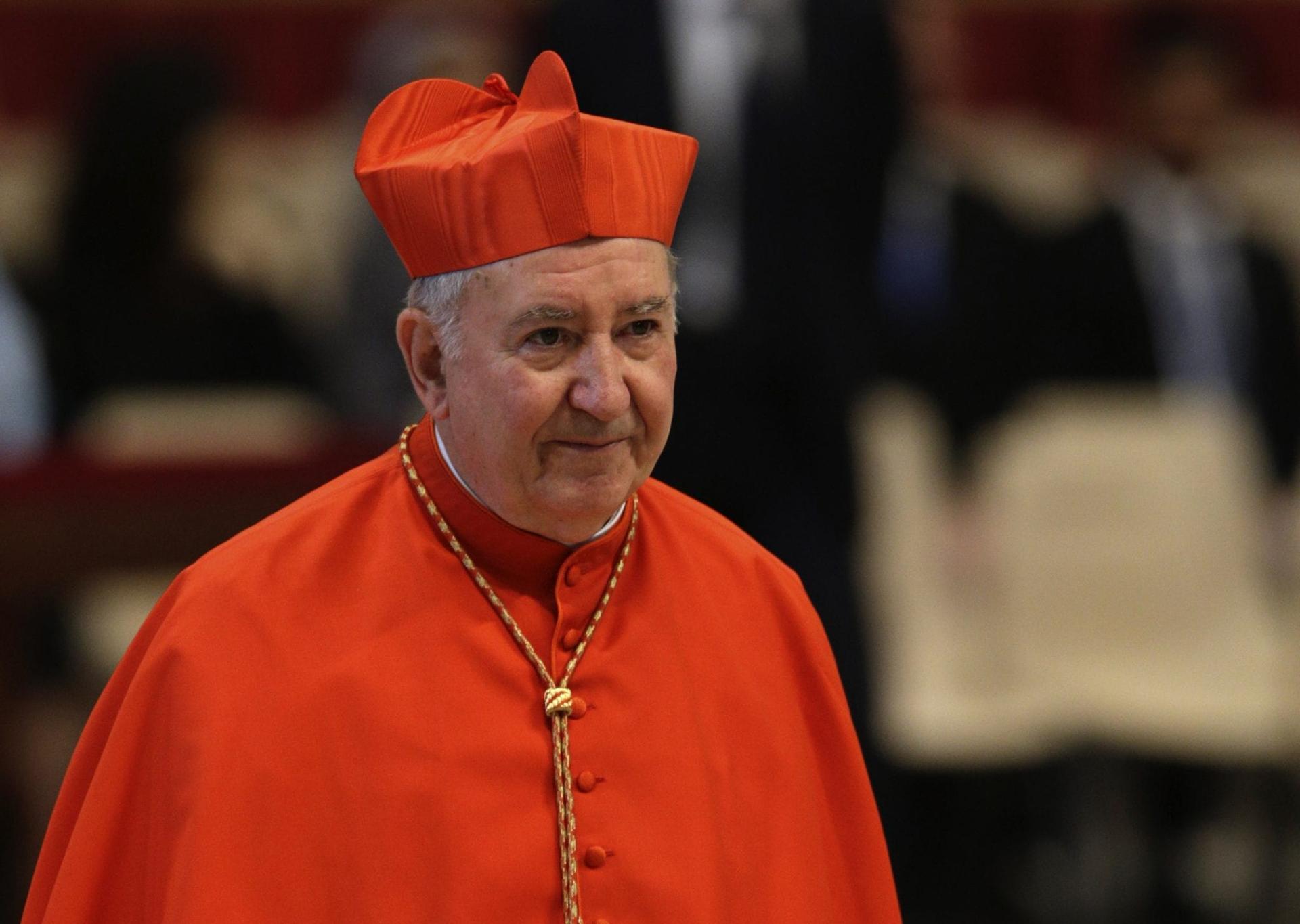ROME — The retired archbishop of Santiago is denying he covered up for an abusive priest in Chile, but is acknowledging the priest’s popularity and ability to produce seminarians weighed on his decision-making.
Cardinal Javier Errazuriz wrote a letter May 10 to his fellow bishops defending his handling of the case at the center of Chile’s sex abuse and cover-up scandal. That scandal is at the heart of an emergency summit between Pope Francis and 34 bishops that began Tuesday to try to map a recovery strategy from the crisis that has discredited the Chilean Church and tarnished Francis’s own reputation.
In the letter, obtained by The Associated Press, Errazuriz insisted that he was only following Church law in waiting more than five years before launching an investigation into Father Fernando Karadima. Only in 2009, after he received a third complaint from one of Karadima’s young parishioners, did he start the process.
Errazuriz wrote that it had been “difficult” to reach the Vatican-required standard of being convinced that the accusations were “at least likely,” particularly given Karadima’s popularity.
“They were accusing a priest with a great pastoral calling, whose preaching enriched more than 30 young people who were ordained priests and four priests who were consecrated bishops,” Errazuriz wrote. “They also accused a priest who inspired a youth association that propagated his fame.”
Karadima’s victims have accused Errazuriz of covering up their claims to protect Karadima, who was popular with conservative Chilean Catholics whose ability to produce vocations endeared him to the Church hierarchy. The victims repeated their accusations earlier this month at the end of a four-day visit with Francis, who has done an about-face on the Chilean scandal after initially discrediting the victims.
In addition to the delay in starting an investigation, the survivors point to a letter Errazuriz wrote in 2006, well after receiving the first allegations, in which the archbishop reassured Karadima he wasn’t being “punished” by agreeing to leave his parish.
“You want to be a saint, and this is how saints do it,” Errazuriz wrote, giving Karadima talking points on how to spin his departure from his community as simply a retirement. Karadima would later be convicted and sentenced by the Vatican to a lifetime of penance and prayer for his sex crimes.
Another document published in Chile’s The Clinic news portal includes minutes from a May 31, 2010 meeting showing how Errazuriz and four Karadima-trained bishops plotted to limit the reputational damage from the accusations.
Another letter, from 2010, documents how Errazuriz persuaded a Karadima protege to explain that the hush money given to an accuser should be explained as a charitable donation, or “work of mercy,” so as not to arouse suspicion.
The Karadima victims sued the Santiago archdiocese in Chilean courts for an alleged cover-up in 2013 but lost. An appeal is pending.
In his letter, Errazuriz stressed that once the investigation began, he pushed to have the statute of limitations lifted “considering the seriousness” of the accusations against Karadima.
“It’s clear there was never any crime or cover up” on his part, he wrote. Errazuriz said he wanted to set the record straight — and had been urged by unnamed supporters to do so — because “I’ve been publicly defamed in recent weeks, branded as a delinquent, criminal” by Karadima’s victims.
Though defiant, Errazuriz said that if he had to do it over again, he wouldn’t hand off the investigation to a deputy as he did. He said that handoff served to distance him from the victims.
“This distance unjustly hurt the victims in a way that I never intended,” he wrote. “I’m profoundly sorry this wound hasn’t healed.”
Errazuriz is in Rome for the meetings with Francis, as are three Karadima-trained bishops who are expected to be asked to resign. Karadima’s victims accuse them of having witnessed and ignored abuse, a charge they deny.














